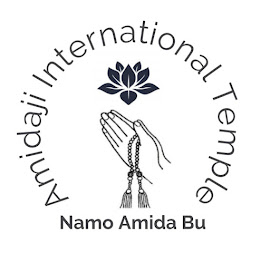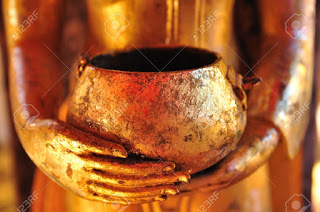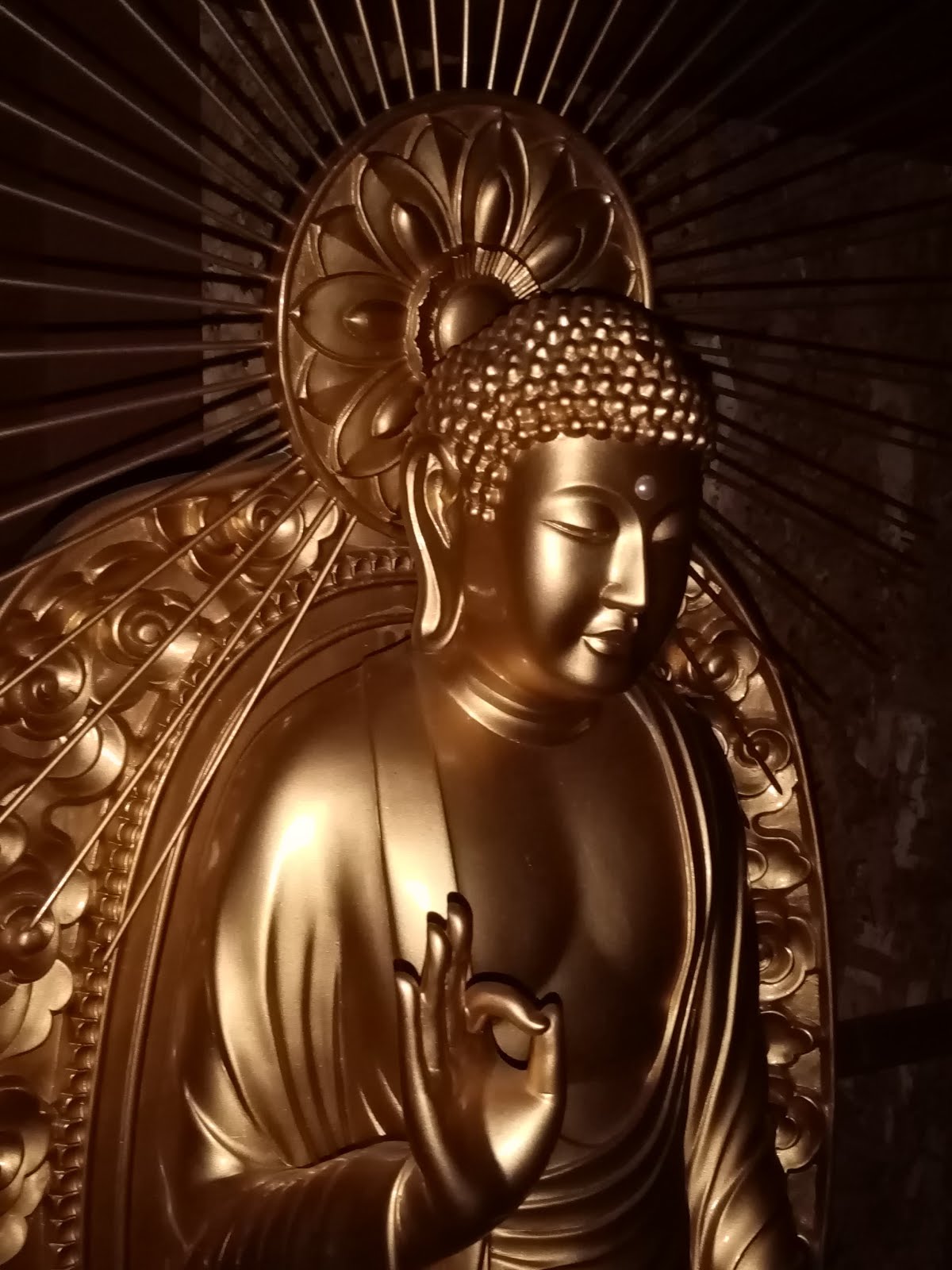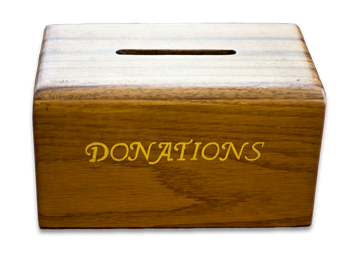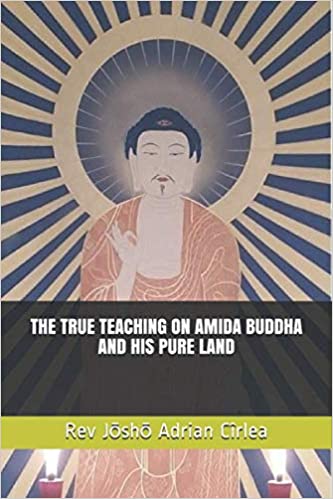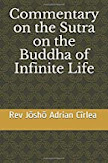Please, read carefully the other articles in this category:
Monday, April 27, 2015
Belief in a creator god is an obstacle to faith in Amida Buddha
Please, read carefully the other articles in this category:
Monday, November 24, 2014
"Good" for birth in the Pure Land
Thursday, October 30, 2014
What is the meaning of faith and nembutsu?
Sunday, May 18, 2014
Question: What part of our mind goes to the Pure Land?
Answer: What we know for sure is that birth in the Pure Land takes place after physical death. This is what the Masters of our tradition clearly said, so we accept it.
At death, what we call ‘mind stream’ leaves the physical body and instead of passing through bardo (intermediary state) and then to other states of existence, it goes directly to the Pure Land where Enlightenment happens immediately. At that very moment, the delusions of our ‘mind stream’ are naturally melt like ice meeting fire, and our true enlightened nature will appear. So, we may say that we go to the Pure Land as we are, but once born there, in the safe and enlightened realm of Amida, ‘we’ transform into something completely different, that is, fully Enlightened Buddhas.
But all these things are inconceivable and beyond conceptual understanding, so I cannot enter into further analysis. Some aspects are imposibile to understand at the level we are now as unenlightened beings. Now all we need to do is to simply entrust to Amida. Jodo Shinshu is the path of simple faith, not of profound understanding in this life of the ultimate nature of mind.
Friday, April 18, 2014
No meditation, just nembutsu
 |
| Master Shan-tao saying exclusively the Name of Amida Buddha |
Question: Is it ok for a nembutsu devotee to also practice various Buddhist or non-Buddhist meditation techniques and mantras, as a mean to calm one's mind or because of various positive effects these might have in one's daily life?
Answer: NO, it is not ok.
Your mind will never be calm – please learn to live with this. Life as an unenlightened person is hard, and there is nothing you can do to change this. So, just say the nembutsu of faith in Amida and wish to be born in His Pure Land after death. If you want to busy your mind with something until you die, then say nembutsu as often as possible; say it many times and concentrate on it. Sometimes your mind might become calmer if you focus on nembutsu, even if calming the mind is not the goal of nembutsu.
Monday, February 17, 2014
Do not worry about wandering thoughts
Answer: When you say the Name in faith, treat this nembutsu as the host and the wandering thoughts as guests. Just say the Name and let the good or bad thoughts arise and vanish, let them come and go as they please. Do not busy yourself with them, you just say the Name and entrust to Amida Buddha. There will always be something to appear into your mind and you simply cannot do anything about this. So, just entrust in Amida and let your changing mind be a changing mind.
Namo Amida Butsu
Monday, January 27, 2014
The safe enlightened realm of Amida Buddha
Answer: The environment in which we now live is the product of our karma and the inter-related karma of all beings. This impure common karma gave rise to an impure environment which also influences us and in which it is hard to have a true spiritual evolution. We ourselves are sick, our fellow beings are sick and the environment is also sick. This is why we are urged to aspire to be born after death, in the Pure Land. This land is the healthy enlightened realm of Amida, a suitable environment which is not the product of evil karma but of His pure karmic merits. Once born in such a sane environment our insanity is cured instantly, our delusions are naturally melt like ice meeting fire, and our true enlightened nature will appear.
Saturday, November 2, 2013
What do I mean by "modern heresies"
Tuesday, September 3, 2013
Letter to a non-Jodo Shinshu friend about modern heresies and respect for all Buddhist schools
Monday, August 1, 2011
The reason for the western location of the Pure Land and its wonderful description in the sutras
Question: „Why the Pure Land of Amida Buddha is called „the Western Pure Land” or „the Pure Land of the West”? Why the „west” is so much emphasized in many of the sacred writings related with Amida? And also why the Pure Land is described in such a fantastic way in the sutras?”
Thursday, February 3, 2011
Realizing our limitations in daily life
Monday, December 13, 2010
On returning from the Pure Land
Saturday, October 9, 2010
About petitionary prayers and superstitions
To believe in luck is in itself a superstition as this implies the denial of the law of karma according to which one reaps what one sows. Luck it is said to appear from nowhere or from the will of a divine being, while the karma implies that everything has a cause in one’s own actions, deeds and thoughts. One cannot be a Buddhist and believe in luck or good fortune. Thus, the urge that we often meet in Jodo Shinshu to not depend on petitionary prayers and superstitions were especially promulgated to prevent us from falling in two wrong views:
1. to misinterpret Nembutsu as a divination method or a petitionary prayer for worldly benefits, and
Saturday, October 2, 2010
Question: are gay and lesbians welcomed in the dojo or temple?
All people
without exception are welcomed in the dojo or temple if their reason for being
there is to listen to Amida Dharma and receive shinjin (faith). This should be
very well understood.
But if you come
to the dojo and tell me „I am gay”, I will reply, „did I asked you something?” If
you also come to the dojo and tell me, „I am heterosexual”, I will give you the
same reply, „did I asked you something?”
If you come to
the dojo or temple and start talking about your homosexuality or your
heterosexuality, or you express it in any form (like for example using the
temple as a place for courtship, etc), trying to use this Dharma place as a
platform for sexual misconduct I will send you home. Why is this? Because the dojo or temple is not a
place for such things. Its the same if you insist talking about politics or
other religions. You simply go home.
I do not care who
you are in your personal life or with whom you make sex with. I do not preach
theories on sexual orientations, but the unconditioned salvation of Amida
Buddha. If you are interested in learning about it, then you are welcomed at the
temple, if not, please don’t come.
Master Rennyo said in his letters that the goal of Nembutsu
gatherings should be listening to Amida Dharma in order to receive shinjin. He
didn’t mention any other reasons for coming to the dojo or temple so I myself
refuse to talk on matters not related with the Shinshu Dharma nor allow any
activities here which are not related with shinjin and birth in the Pure
Land.
All you need in
order to be born in the Pure Land of Amida Buddha is shinjin (faith). This
shinjin has no color and no sexual orientation. My duty as a priest is to
help you receive it, so when I put my robes and kesa I leave everything else
behind. Please also do the same and do not lose your time and mine with
unimportant matters.
Wednesday, March 17, 2010
Shinjin and Buddha nature
Monday, March 8, 2010
Does the Pure Land really exist?
Answer: Yes it does.
"All conditioned things are impermanent." (sarvasamskaaraa anityaah)
Friday, October 3, 2008
Why do we need discipline in a dojo or temple?
Monday, July 28, 2008
The Pure Land is NOT here and now
updated and revised September 30, 2021
Questions:
1. I sometimes think the central
theme of Buddhism is that it all comes from Avidya (ignorance) and this makes
us view the world as samsara rather than Nirvana. I wish to know what some
Buddhists mean when they say there is no distinction between the two. Also,
related to this and bringing it back to Jodo Shinshu: Is the Pure Land here and
now or not? Or is it to be reached after death when we become Buddhas?
Personally, I think it has to be here and now or it is nowhere. For me this is
what I thought was the essence of Shinran’s teaching, and why I was attracted
to it.
2. As far as the Nembutsu is concerned does it have a particular form? Or
rather is it a door through which ignorance is cleared and we realize we have
always been in the Pure Land?”
Thursday, July 24, 2008
Some discussions on the nature of Amida Buddha
Sunday, March 2, 2008
Difference between Jodo Shu and Jodo Shinshu
I myself asked Inagaki Sensei about this matter and here is his answer. I hope everybody will find it useful:
"Jodoshu (A) and Jodoshinshu (B)
by Zuio Hisao Inagaki
Feb. 27, 2008
◇ Though both A and B are based on the Primal Vow, A emphasizes recitation of the Name, whereas B stresses mental state of entrusting to Amida. It may be noted that those who say the Nembutsu do not necessarily place absolute faith in Amida but that those who have absolute faith in Amida unfailingly recite the Nembutsu.
◇ A tends to encourage voiced Nembutsu, whereas B accepts both voiced and soft Nembutsu. B speaks of 'natural' Nembutsu. A 'encourages' the followers to make great efforts to say the Nembutsu.
◇ The number of the Nembutsu recitations is often emphasized in A, but in B the number of the Nembutsu is not important. In B, even one Nembutsu is enough to receive Amida's merit, so long as absolute faith is securely established in one's mind.
◇ In A, even if one recites many Nembutsu all through life, one may not be able to attain peace of mind at the time of death. In B, as soon as one attains absolute faith, one dwells in complete peace of mind.
◇ It follows then that followers of A make great efforts to recite the Nembutsu until death when they expect to meet Amida's coming to welcome them to the Pure Land. Followers of B do not expect this, because they are peaceful and happy in Amida's embracing Light.
related article - Peace and happiness of shinjin (faith)

